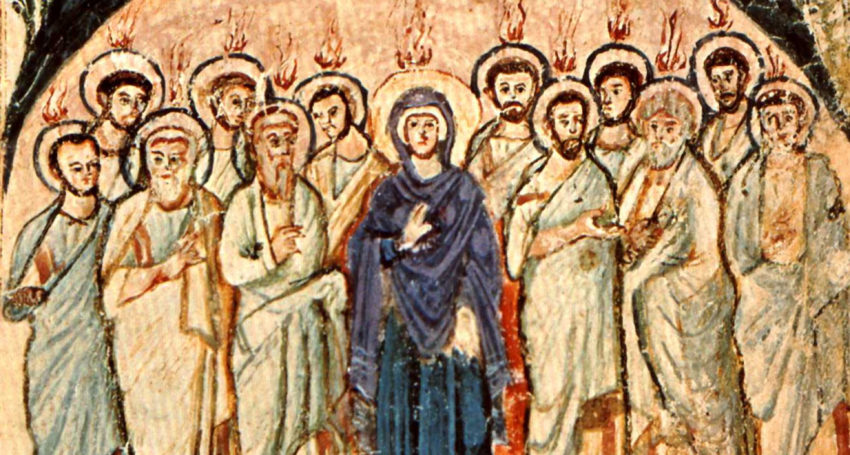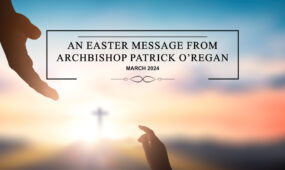Pentecost: not one but 50 days
Opinion
The early understanding of Pentecost as a time of continuing joy following the ascension of Jesus remains a significant focus for the Church, writes JENNY O’BRIEN, liturgy educator with the Office for Worship.

If you look in your Sunday Missal you will find an interesting fact: the weeks following Easter Sunday are not called the Sundays after Easter, but the Sundays of Easter. This is for a very good reason. The 50 days between Easter Sunday and Pentecost Sunday were viewed by the early Church as a single great celebration of Jesus’ resurrection, like a ‘Great Sunday’ that extended for a week of Sundays. Indeed the word ‘Pentecost’ actually means ‘50 days’ and it was the late 4th century before this title referred only to the 50th day.
Advertisement
Since the Second Vatican Council the Church has invited us to retrieve that earlier understanding: the joyful celebration that begins on Easter Sunday continues as week by week the Gospel readings speak of the presence of the risen Christ with his disciples and the Acts of the Apostles tell of the establishment of the early Church. The absence of Christ from the earthly realm through his ascent to heaven is paralleled by the presence of God’s Holy Spirit in the midst of the Church, sent as Christ had promised. We have a visible sign of this in the Paschal Candle – the symbol of Christ who was crucified, died and raised to new life – which remains in the sanctuary for the 50 days of Easter and is only removed when the coming of the Spirit has been marked on the 50th day.
What does that mean for us? It means that we need to understand that the death, resurrection and ascension of Jesus come to their climax in the pouring out of the Spirit into the Church. The same Spirit that raised Jesus from the dead is now present to all who believe, enabling us to share in the new creation that began with the resurrection. Christ promised to be with us until the end of the world, and it is through the presence of the Holy Spirit that this promise is fulfilled. The reconciliation of the entire universe is assured.
Advertisement
In the early Church no-one knelt during the period of the Pentecost. The theologian Tertullian put it this way: “Kneeling for prayer befits times of trouble and need, for it expresses intense supplication. But since the Fifty Days are filled with the presence of the Lord and the gift of the Spirit, Christians must pray standing erect, confident and joyful at already being in possession of whatever could be asked for in prayer.”
In the same vein, there was no fasting. During his public ministry Jesus had been asked why his disciples did not fast and he had responded: “Can the wedding guests fast while the bridegroom is with them?” Because the days of the Pentecost recall the many appearances of Jesus to the disciples after the resurrection, the early Church could not countenance the idea of fasting while celebrating the presence of the Lord with them. Only after his ascension to heaven and the descent of the Holy Spirit could the normal pattern of fasting be resumed.
The other great sign of continuing joy during the 50 days (the Pentecost) was the singing of the Alleluia. This Hebrew word meaning ‘praise the Lord’ has been absent from the liturgy during Lent. Now it comes out again in all its glory, not only as a sign of our joy, but as a reminder that one day, when our life on earth is over, we will join forever in this song of the heavenly choir whose sole occupation is the praise of God.
Let us immerse ourselves in these joyful ‘Fifty Days’, assured that Christ watches over us at the right hand of the Father in heaven while the Holy Spirit is present here and now with us, giving us the wisdom, knowledge, understanding, strength, courage, advice, prayerfulness and wonder in the presence of God that we need to live as faithful disciples.







Comments
Show comments Hide comments